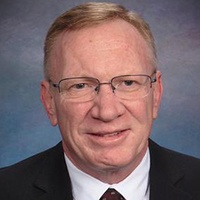Waverly Misdemeanor Lawyer, Nebraska
Timothy P. Sullivan
✓ VERIFIEDCriminal, DUI-DWI, Misdemeanor, Felony, Visa
Experienced, Effective, Aggressive Representation
Timothy Sullivan is a lawyer based in Lincoln, NE who can assist with criminal defense, family law, immigration, and more.
Bradley Andrew Sipp
Family Law, Divorce & Family Law, Misdemeanor, Criminal, DUI-DWI
Status: In Good Standing
David A. Castello
Workers' Compensation, Misdemeanor, Civil Rights, Insurance
Status: In Good Standing
Douglas Jeffrey Amen
Construction, Trusts, Divorce & Family Law, Misdemeanor
Status: In Good Standing
Grant Thomas Maynard
Litigation, Wrongful Termination, Misdemeanor, Securities
Status: In Good Standing
Greg Abboud
Misdemeanor, DUI-DWI, Personal Injury, Car Accident, Federal Trial Practice
Status: In Good Standing


